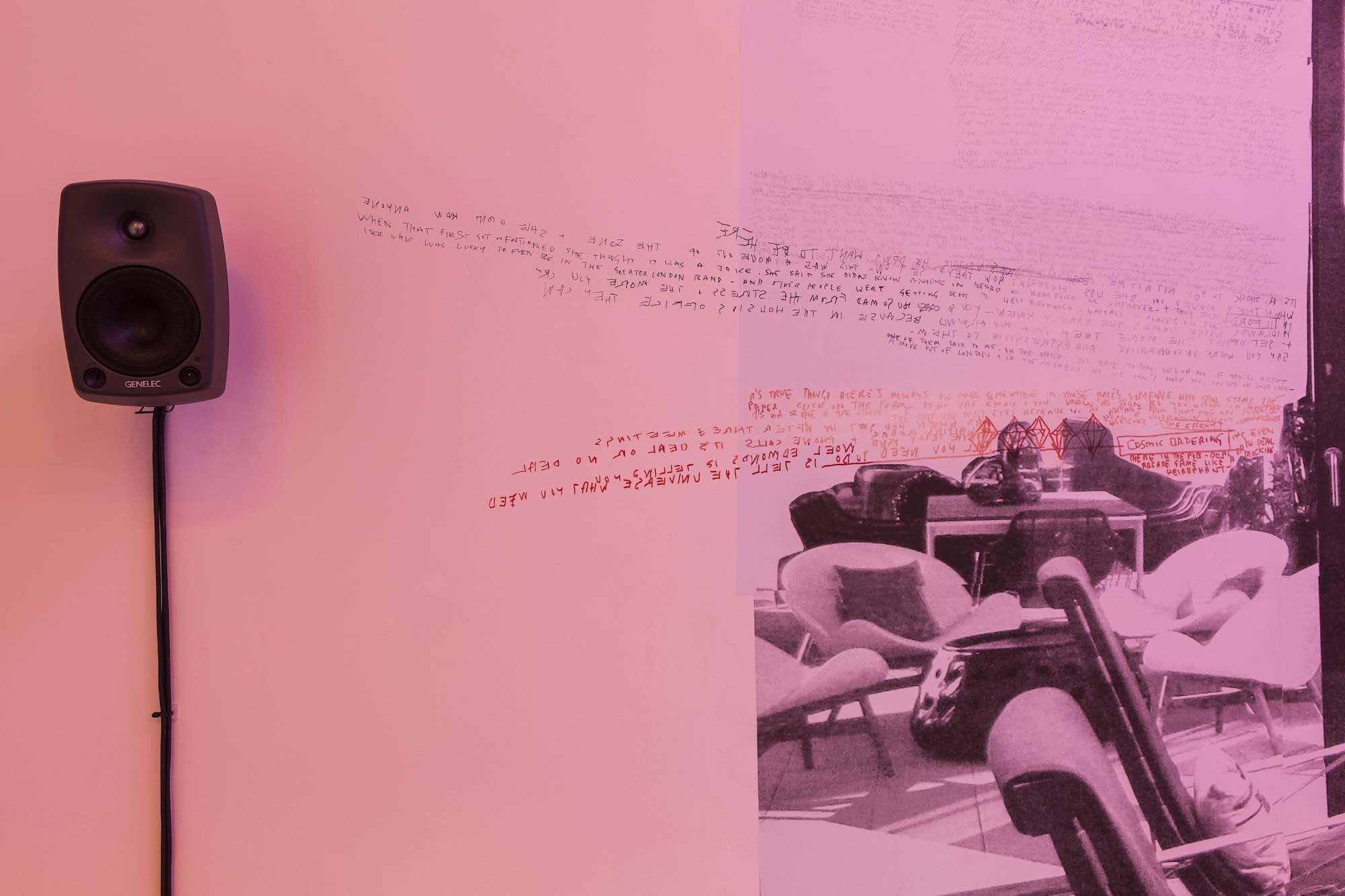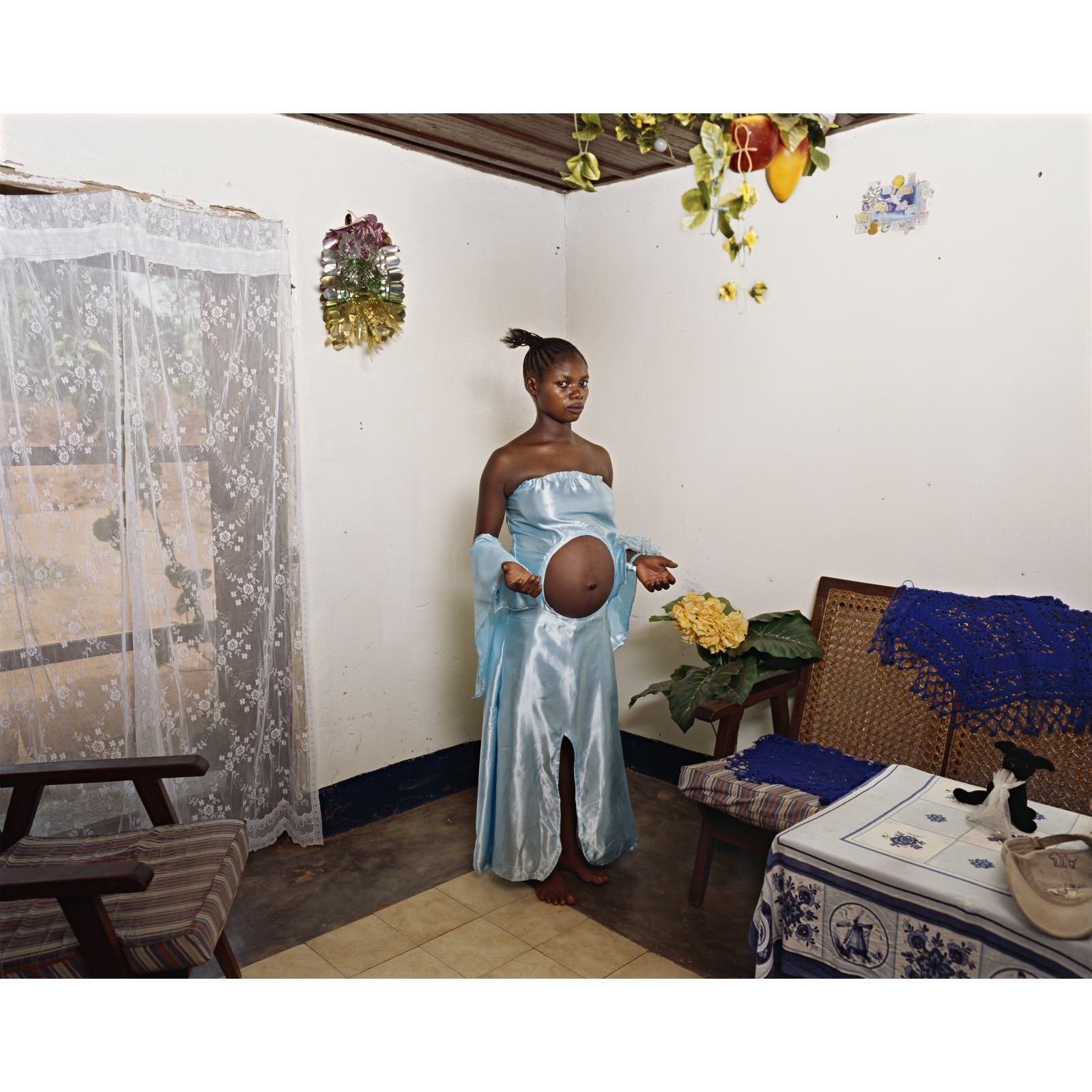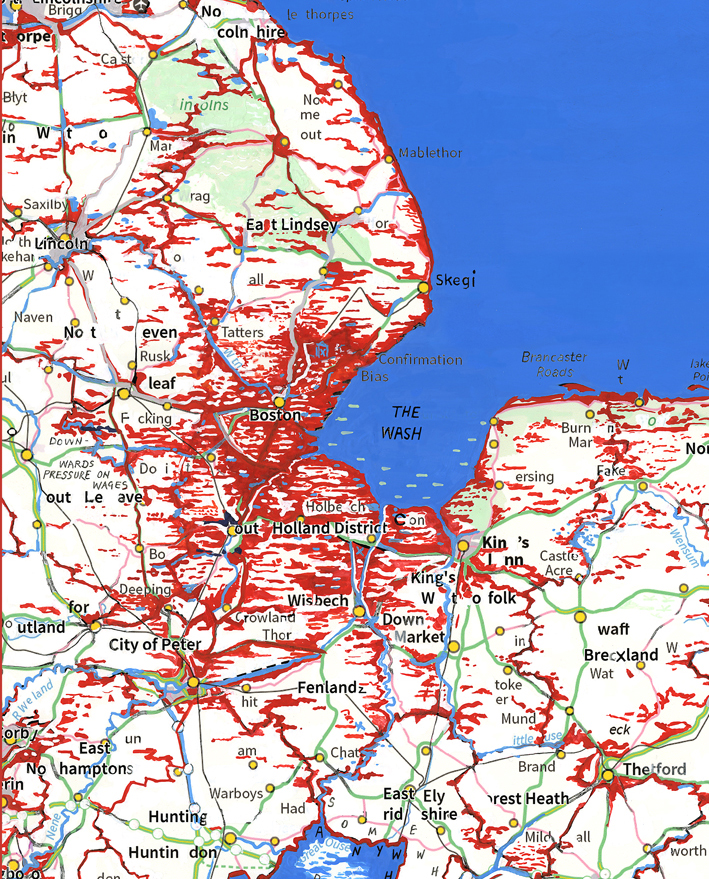Ghosts of the City: the Savage Art of Laura Oldfield Ford

Laura Oldfield Ford operates in the subcultural undergrowths of the UK’s fast disappearing sites of counter-cultural refuge and activism.
Her artwork is inspired by walks through spaces inspired by the Situationist idea of the dérive. In her most recent exhibition, Alpha, Isis, Eden, at The Showroom gallery in London until March 18, the space around the gallery soon to be subsumed in a regeneration ‘masterplan’ inspires walls of prints, all from brochures advertising the yuppiedrome marked to consume the area.
Audio from a ‘sonic dérive' adds an extra dimension of engagement, made in collaboration with Jack Latham, with whom she struck up an affinity at the bar of a Holiday Inn. Alpha, Isis, Eden engages the viewer in a multi-sensory experience in the ghosts of occupied spaces, casting the street life of the outside into the domestic world and catapulting it into the open. In addition to her exhibiting and written practice, Oldfield Ford has been self-publishing the zine Savage Messiah since 2005, a diaristic account of her various dérives inspired by traditional punk culture.
GOOD TROUBLE: Can you tell me about your 'dérive' for Alpha, Isis, Eden?
LAURA OLDFIELD FORD: I used to go to raves under the Westway, in Breakers Yard and in the foundations of brutalist buildings in the 90's. Later on I worked in day centres with old people. So I have all these stories, all these memories already there etched into the fabric of the place. When I set out on those walks last summer, I didn't have a fixed idea of where the focus of the show would lie, I wanted to feel the affective shifts, the emotional sense of that place in that particular moment, summer 2016. I wanted to gauge the socio-political tremors, the kind of music coming from car windows, the pharmacological mood...
The presence of multiple temporalities, and both personal and collective narratives, are intertwined within your work. Why do you choose to create work in this way?
“I am collapsing decades and saying these ecstatic moments connect, that each instance is a glimpse of another reality very close to this one.”
I think it's about an idea of history, not a linear trajectory but something scored with breaks and ruptures that time can fold and slip and that moments can recur unexpectedly. I think I approach my work as channeling these threads or historical currents that I think of as lying dormant. When I’m writing about these flashpoints of historical intensity, of militancy, I am collapsing decades and saying these ecstatic moments connect, that each instance is a glimpse of another reality very close to this one.
How do you see the interior and exterior ideas of community to relate to one another?
I'm suspicious of the idea of community, I'm much more interested in society. The word community is often evoked to suggest something fixed and conservative, but in terms of allegiances, gangs, collectives…yes these things are really important to me. A recurring obsession for me is the idea of breaking out of a solitary malaise, reconnecting with the collective. I think a lot of people are isolated and intoxicated at the same time. I often talk about all the prescriptions for SSRIs, people drinking on their own in Wetherspoons, smoking weed in the Travelodge car park...there is a latent psychedelic consciousness but it seems for the most part walled off, but then, those moments of rupture come and the walls melt...that's what my work has always been about – the idea of epiphany, transcendental moments.
What about art itself do you think makes it such an effective weapon in the contemporary age?
“I think certain records or works of art can blast open a new space and time.”
I think certain records or works of art can blast open a new space and time. I think techno, acid house and post punk did that, also the early jungle stuff and free party scene. I feel currents of that running through grime…I remember when I heard that Skepta track 'Nasty' really loud in 2015 – I just loved it, it was so spatial and intense…the way dub can feel, really dark sonic architectures.
There is a spirit inscribed within your work that monumentalizes the memory of the subcultural sects that are mercilessly being buried beneath a gentrified London. What inspired you to first create work around the subject?
I've been around alternative and countercultural scenes pretty much whole life. My uncle used to go to Wigan casino, he was a DJ, and my older cousins were into all the new wave and post punk, so in a sense it's about documenting and chronicling something you're exposed to. In towns and cities up north in the 1980s everything was tribal, skinheads, anarcho-punks, goths and rastas. Coming to London in the early 90s, I was already aware of that process of recuperation, it was a strange time. I remember seeing Nirvana play in 1991 and Kurt Cobain already acting as if he had been recuperated, that everything was being channeled into MTV. And yet there were many eruptions of militancy that fractured the corporate culture of the decade from the Criminal Justice Bill protests, the RTS parties, J18, and stuff happening in the parties we were going to. It was always as if two worlds co-existed, the MTV one and the other unassimilable one that operated in squats, traveller sites and industrial estates. Savage Messiah was about restoring a radical critique to a form that had been recuperated, the cut and paste anarcho-punk fanzine.
What are your views on the current state of politics, such as the governing of Theresa May and Trump’s rise to power?
“I think it is imperative that we don’t feel a sense of despair but instead recognise the Brexit and Trump phenomena for what it is, a rejection of neoliberalism.”
I think all the rhetoric around Trump and Brexit, a lot of it was stolen from the absent left discussions around places being left behind, deindustrialisation. I think for a lot of people voting Brexit was actually the expression of a disenchantment with neoliberalism even if it wasn't articulated that way. A lot of people I know, family, people I grew up with, voted Brexit because they feel aggrieved by the attitude of successive governments, the idea that as a class, or a region, they are no longer useful, that they are now just a blight, Broken Britain. They don't feel politicians are speaking on their behalf. I think if the left was united and the Labour party had the guts to be a radical left wing organisation they would have done well in the last election. I think it is imperative that we don't feel a sense of despair but instead recognise the Brexit and Trump phenomena for what it is, a rejection of neoliberalism. The centre has collapsed – it's up to us to organise and work collectively to make an alternative to that. I feel despondent when I see people who identify as left mired in this bullying online culture, I see that as part of the problem.
Lastly, who is the ‘Savage Messiah’?
Savage Messiah is a name I chose when I started the zine because it suggested prescience and militancy, it's not a single person, it's not me...it is really about a force, a seizing of collective power. I believe in redemption, I think the idea of freedom from captivity, the idea of transformation and transcendence is critical.
LAURA OLDFIELD FORD is part of an upcoming group show The Sky is Falling at the Centre for Contemporary Arts in Glasgow, opening the 31st of March. Her current exhibition, Alpha, Isis, Eden, is on at The Showroom Gallery in London until the 18th of March.
Arts writer based in London, UK.





